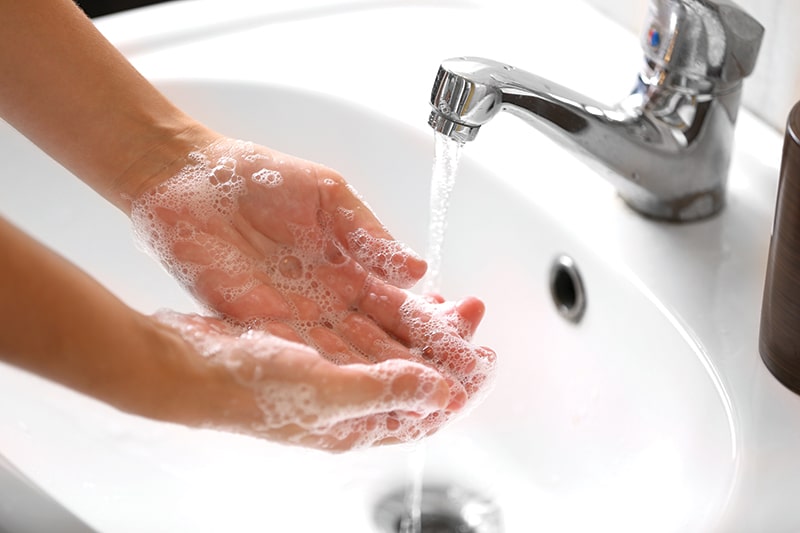It’s easy to feel defenseless during cold and flu season, especially with a new virus dominating the headlines.
But we’re far from helpless. In fact, soap and water appear to be just as effective against the new coronavirus as they are against more run-of-the-mill germs.
“Handwashing significantly prevents the spread of infections,” says Senait Woldai, MPH, CIC, infection prevention manager at Methodist Charlton Medical Center.
About 20% of respiratory infections are preventable by simply washing your hands properly, according to the Centers for Disease Control and Prevention. Germs, after all, need a delivery device, and that’s usually an unwashed hand.
“Try not to touch your nose, eyes, and mouth, which are common ports of entry for germs,” Woldai says.
But just running your hands under the faucet won’t cut it. Do it right, or you may as well not be doing it at all.
Washing the right way
- Don’t be hasty, and don’t worry too much about wasting water. Wet your hands, and turn off the tap while you lather up.
- Make sure the soap covers the backs of your hands, between your fingers, and under your rings and fingernails — all prime real estate for germs.
- Scrub your hands for at least 20 seconds. If you need a timer, hum the “Happy Birthday” song twice from beginning to end.
- Rinse off, and dry your hands well with a clean towel or hand dryer.
When to wash up
- After using the bathroom. By some estimates, a third of us don’t use soap after using the restroom, and 1 in 10 don’t bother to wash up at all.
- After changing a diaper
- After blowing your nose, coughing, or sneezing
- Before, during, and after you prepare food. Handwashing can prevent making you or your loved ones sick through food poisoning.
- Before you eat
- Before and after caring for someone who’s sick
- Before and after treating a wound
- After petting an animal or handling pet food
- After touching garbage or taking out the trash
It’s also wise to steer clear of germs in the first place, when you can. Avoid touching elevator buttons, public keypads, keyboards, tables, shopping carts, toilet seats, and toilet handles.
Consider carrying your own pen, along with a bottle of hand sanitizer that contains at least 60% alcohol for when you don’t have access to soap and water.
But the best defense against getting sick or spreading germs to others is the same as ever.
“The best way to do it is with soap and water,” Woldai says.

